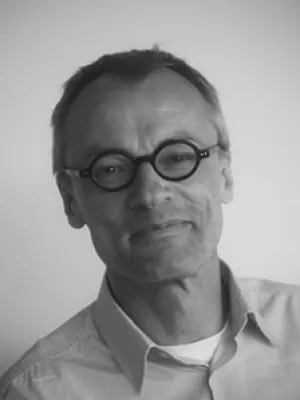
Bo Isenberg
Associate Professor | Senior Lecturer

Överflöd och ofullbordan : Essä om det moderna
Abundance and Incompleteness. Essay on Modernity
Author
Summary, in English
The essay is centred around three main, corresponding conceptions, which constitute the outcome of combinations and variations. Inversely, they also provide direction and meaning to the notions that are reworked. Together, they make up the answer to the question of modernity. The notion of ”the principle of insufficient reason” signifies the specific modern experience that nothing has a necessary and in itself sufficient reason (foundation, rationale). Everything that exists, could have been different. God is no longer sufficient, nor tradition, nor myth. That which exists in modernity, exists incidentally; and it may be derived from different, even opposite reasons. Structivity denotes the idea or disposition according to which nature, society, and man himself appear as being at disposal, as objects that could (ought to) be moulded through processes of destruction and construction. If nothing has to be the way it is, everything is a potential target for structive efforts. To modernity, order and reality, meaning and truth are brought about structively, whereas in pre-modern society they were given, that is, resting on sufficient reasons. ”Structivity” is modernity’s response to the experience that everything lacks sufficient foundations; similarly, modernity’s structive disposition evokes a world without sufficient reasons. Capitalism, the state, modern art, and science, not the least sociology, all appear as essentially structive. ”Abundance” signifies the specific modern trait of a plenitude of concurrent truths, meanings, realities, orders, and possibilities - political, moral, scientific, religious, etc. Different truths and meanings, orders and realities make their own claims, simultaneously, in the same place. No singular truth or reality is capable of subjugating other truths and realities but temporarily. Modernity is abundant since there is no sufficient reason to constitute and regulate reality and order; abundance, in turn, makes rationales provisional, makes them insufficient. The scarcity of modernity concerns unambiguous meaning and reality - not meaning and reality as such.
The study concludes with a brief discussion of postmodern thinking. In essence, postmodern reflection was a variation of classical modern thought. The latter could be understood as the ”archive” from which postmodern and other late modern discourses (reflexive modernity, second modernity, late modernity) derive their concepts. - Essentially, our epoch is still modern, as is reflection upon self and culture.
Department/s
- Sociology
Publishing year
2001
Language
Swedish
Document type
Dissertation
Publisher
Coyote Förlag, Magnus Stenbocksgatan 5, SE-22224 LUND, Sweden
Topic
- Sociology (excluding Social Work, Social Psychology and Social Anthropology)
Keywords
- abstraction
- abundance
- classical modernity
- contingency
- crisis
- modernity
- oblivion
- postmodernity
- the principle of insufficient reason
- religion
- society
- sociology
- structivity
- Sociology
- tradition
- cultural sociology
- historical anthropology
- Sociologi
- Cultural anthropology
- ethnology
- Kulturantropologi
- etnologi
Status
Published
Supervisor
- Johan Asplund
ISBN/ISSN/Other
- ISBN: 91-972376-4-7
- ISRN: LUSADG/SASO-01/1139/SE
Defence date
12 October 2001
Defence time
13:15
Defence place
Edens Hörsal
Opponent
- Jon Hellesnes (Professor)

